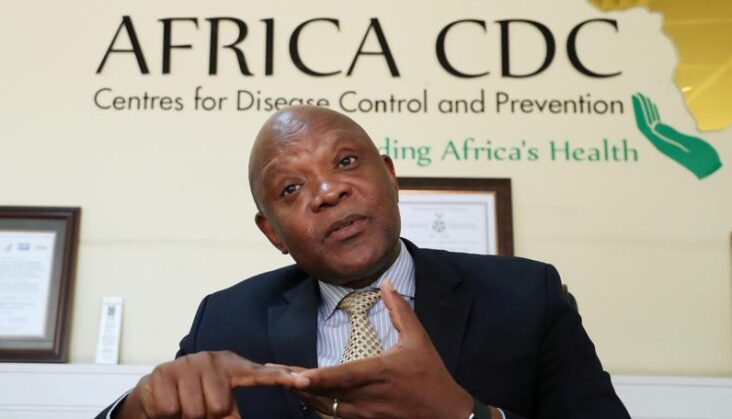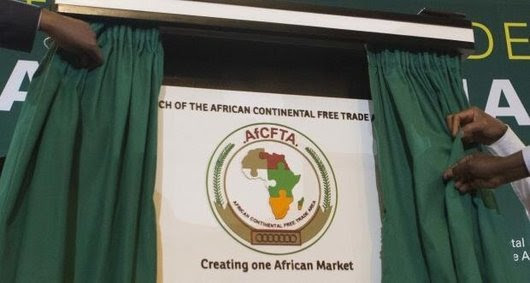Global Health Institutions Need Africa
By AHMED OGWELL OUMA
Public-health policy has adopted an increasingly expansive perspective in recent years, reflecting a growing awareness of the many factors influencing human well-being, including the health of ecosystems and animals, and the need to facilitate global collaboration. By bridging disciplines and transcending borders, we can better address emerging threats and improve health outcomes for all.
Global pandemic preparedness, for example, requires international alignment on how to modify health infrastructure and tailor responses. The Africa Centres for Disease Control and Prevention (Africa CDC), of which I am acting director, has participated in several global discussions on the subject, ensuring that Africa’s interests – and the Global South’s perspective more generally – are represented in venues where they have been historically sidelined. Genuine inclusion of African voices in policy deliberations, especially early in the process, is the only way to establish common positions that do not leave low- and middle-income countries to fend for themselves.

As the public-health arm of the African Union (AU), the Africa CDC collaborates with member states on numerous regional programs. The next step is to increase the continent’s participation in global decision-making, especially when policies have greater implications for places where disease outbreaks and health emergencies are more frequent – like most countries in Africa. Currently, voices from the Global South are rarely heard on the international stage, and African participants at global health forums and conferences are often isolated, or else included further downstream only after decisions have already been made. Thoughtful, deliberate action is therefore required to bring these stakeholders to the table early on.
Read also : Kenyan Cleantech Firm PayGo Energy Acquired By Sun King. Here Are Key Reasons For The Acquisition
The Africa CDC and similar organizations must take the lead in conceptualizing and developing new platforms that give voice to the countries most affected by global inequality. In parallel, existing institutions and working groups must consult with African governments in a genuine and serious way.
The ongoing review of the World Health Organization’s International Health Regulations is a good example of greater inclusion. Member states of the WHO African Region proposed amendments that reflect their unique needs and advocated for increased collaboration and equity, including a stronger requirement for state parties to deliver health products and technologies to other jurisdictions that need them to fight public-health emergencies. The proposed changes also called for expanded benefit-sharing as a prerequisite for transferring biological material and data, and the establishment of a financial mechanism that provides grants or concessional loans to developing countries, which often lack the funding to prepare for future health crises.
By contrast, suboptimal representation of Africa in the World Bank’s Pandemic Fund represents a missed opportunity. Considering that the Africa CDC directly supports AU member states in responding to health emergencies, we could have played an essential role in this new decision-making body. While the AU is not yet one of the Pandemic Fund’s Implementing Entities, we encourage member states to participate in the Fund’s first call for proposals.
There are signs that institutional change is taking root. The zero draft of the WHO instrument on pandemic prevention, preparedness, and response, created for the intergovernmental negotiating body, proposes granting single votes to states at the Conference of the Parties. It also recognizes the potential for regional bodies to exercise the full number of their members’ votes (if none of the member states exercises its right). This system would better reflect the majority view of the Global South in the Conference of the Parties, while also acknowledging the coordinating role of regional organizations. The regional representation and co-chairing arrangements envisaged for the instrument’s intergovernmental negotiating body are likewise a step in the right direction. More should be done, however, to normalize equity by using binding language for relevant financing and intellectual-property commitments.
Read also : African Development Bank Partners Africa Fintech Network on $525,000 Grant For Fintech in Africa
More forceful terms are also important in realizing the 100 Days Mission, which aims to develop and enable access to safe and effective vaccines against new pathogens within 100 days of an epidemic or pandemic threat being identified. The Africa CDC will closely monitor the initiative and related projects, which should guarantee, rather than merely enable, equitable access and distribution. The recent announcement of a vaccine-manufacturing partnership between the Coalition for Epidemic Preparedness Innovations and Institut Pasteur de Dakar, for example, should boost domestic drug supplies.
The Africa CDC recognizes that promoting African countries’ influence on global health policy must be combined with efforts to shape priorities and policies on the continent. This includes leading discussions and creating platforms like the Conference on Public Health in Africa. Two areas ripe for partnership and investment are the regional manufacturing of medicines and medical supplies and the implementation of a “One Health” approach – balancing the health of people, animals, and ecosystems – to reduce the threat of zoonotic diseases and prevent future public-health emergencies.
REad also : Cameroon Fintech Diool Upgrades Platform to Allow over 500 Transactions at a Time
While COVID-19 demonstrated the Africa CDC’s ability to marshal a well-coordinated response, it also revealed that promises and pledges from foreign partners do not always translate into meaningful support. Guided by the New Public Health Order, the Africa CDC’s latest health-security agenda, and the need to correct imbalances and make our public-health systems more self-sufficient, we will continue to amplify voices from the continent and champion partnerships between African institutions and like-minded global actors. We are committed to playing our role in ensuring that Africa is part of an inclusive global health system and is represented at forums that impact global health security. The next serious disease outbreak is just around the corner, and it is up to us to be ready.
Ahmed Ogwell Ouma is Acting Director of the Africa Centres for Disease Control and Prevention.
Kelechi Deca

Kelechi Deca has over two decades of media experience, he has traveled to over 77 countries reporting on multilateral development institutions, international business, trade, travels, culture, and diplomacy. He is also a petrol head with in-depth knowledge of automobiles and the auto industry






